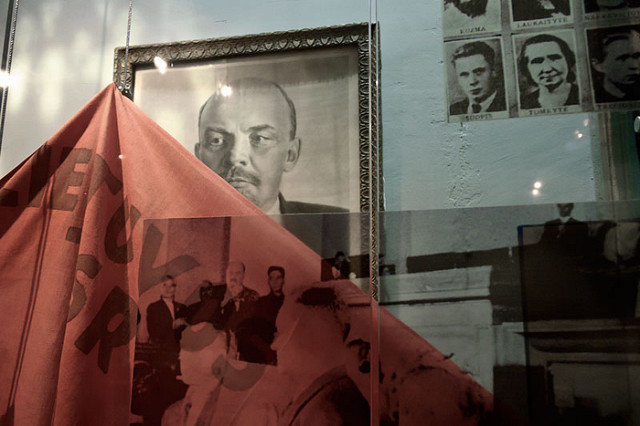We had several good agents at Radio Liberty, whose staff included many emigres from the USSR. But by far our best agent there was a man named Oleg Tumanov, who had a twisted history of involvement with the KGB that continued into the 1990s.
Tumanov’s saga began as a young sailor with the Soviet merchant marine, when he jumped overboard in the Baltic Sea and swam to Sweden. He settled there for a while, later traveling to Austria. But Tumanov apparentl ywas just as unhappy in the West as he had been in the USSR, and he began writing letters to relatives back home expressing his dissatisfaction.
“Listen, if you want to come back and start a new life, why don’t you do something for your country,” our agent told Tumanov. “Help our people and they will help you. It’s not difficult.”
Tumanov said he was interested in working for us and returning to the Soviet Union, and our agent introduced him to a KGB officer stationed in Vienna. Our officer told Tumanov that before he returned to the USSR, we wanted him to take a job at Radio Liberty. His credentials were good (he was, after all, a defector), and before long Tumanov was hired as a low-level analyst for Radio Liberty. He proved to be extremely capable and rapidly rose to the head of Radio Liberty’s Russian-language service, a promotion that gave us much satisfaction in Moscow, knowing that a KGB agent was now in charge of the most fiercely anti-Soviet, Russian-language radio program.
Tumanov remained head of the Russian service for several years. In meetings with his KGB case officers in Germany, he kept us well informed about activities at Radio Liberty and the CIA’s involvement with the station. He subtly helped us spread rumors and disinformation, and did what he could to create conflict among the staff members. Among other things, we wrote anonymous anti- Semitic letters which caused a rift among some station employees. He also told us which of his colleagues might be ripe for recruitment or which — because of homosexuality, philandering, or thievery — might be susceptible to blackmail.
Through Tumanov, we recruited two other Radio Liberty employees, including one man from the Baltic States. Polish intelligence also had two Polish emigre agents on the staff of Radio Liberty. Though he had to be careful not to seem pro-Soviet, Tumanov did manage to avoid airing blatantly anti-Soviet material.
Perhaps Tumanov’s most notorious act was the help he gave us in planting a bomb at Radio Liberty’s Munich headquarters. The explosion was my idea, and my aim was not to hurt anyone but rather to stir up sentiment to move the rabble-rousing station out of Munich and Germany. We began planning the explosion in 1979, but didn’t actually carry it out until two years later, when I was already in Leningrad.
With Tumanov’s help, an East German agent planted a small bomb that caused minor damage but made an awful racket and shattered windows in the neighborhood. Unfortunately, even though the KGB set off the explosion in the early hours, one person sustained an eye injury.
There is a postscript to the bombing story. In 1991, just three days before the August coup, I visited Radio Liberty in Munich to talk about the need to reform the KGB. While there, I told the Radio Liberty staff that I had masterminded the bomb explosion. I thought they would pounce on me, but most took the news calmly and said they were happy I was now on their side.
https://www.youtube.com/watch?v=gHmpgUluE9E
Tumanov eventually had to flee Munich and Radio Liberty when a high-ranking KGB official with knowledge of Tumanov’s KGB ties defected to the West.
Tumanov received a big welcome in Moscow, where the KGB portrayed him as a hero who had infiltrated and exposed that foul purveyor of anti-Communist propaganda, Radio Liberty. Our masters of deception claimed he was a KGB officer who had risked life and limb to work in the West. No mention was made of the fact that twenty years earlier he had defected from the USSR.
I was to run into Tumanov again, in almost comical circumstances. In 1990, after I publicly denounced the KGB, Tumanov, still a stooge for the security apparatus, attacked me. When I ran for the Soviet parliament, he published scathing articles about my career and even traveled to my legislative district in southern Russia to lambaste me.
“I denounce this man!” Tumanov said at one meeting. “I know him. He betrayed everyone at Radio Liberty!”
In response, I let everyone know who in fact Tumanov was, for I found it unpalatable that the very man I had helped bring home to the USSR — a traitor and double defector — was now accusing me of treachery. Even today, Tumanov is a hard-liner, spouting nationalist, pro-Communist cant.
Adapted from Oleg Kalugin’s Spymaster: My Thirty Two Years in Intelligence and Espionage Against the West. Photograph courtesy of Mikko Vento. Published under a Creative Commons license.





